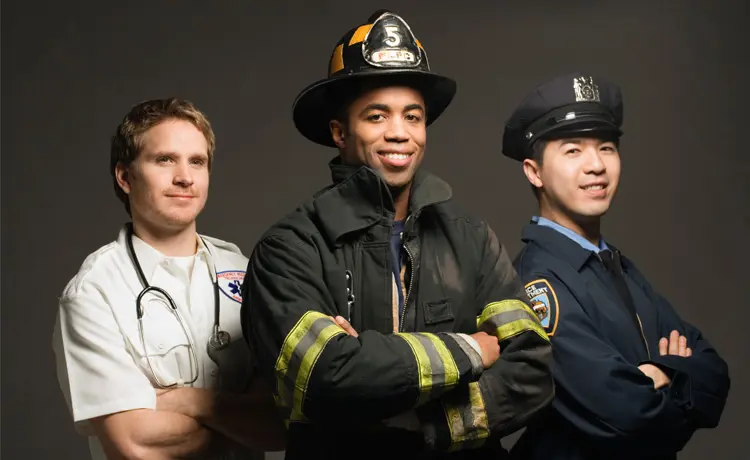Stress management for emergency personnel should start at home. All emergency personnel (first responders, emergency medical service, law enforcement, wildland firefighters, etc.) face challenging and often extremely stressful obstacles in their line of duty. Ensure all the first responders in your community know that while stress is part of the job, there are healthy ways to recover from it, and this can start at home. Share the information below with all your emergency personnel.
Types of Stress
Controlled stress: Helps you be innovative, efficient and productive. Extreme or prolonged stress: This is destructive. Your mind and body can’t rest and recover if stress is constant. Uncontrolled stress: This is disruptive to your life and your work. It erodes mental and physical health, diminishes job performance and interferes with relationships. Uncontrolled stress can alter your personality and cause depression and suicidal thoughts.
Stress and Performance
Stress produces an elevated state of arousal or readiness; the greater the stimulus, the greater the stress reaction. Here are some examples:
Slight Stimulus
- Issuing a ticket: This produces little change in a police officer’s level of arousal.
Moderate Demand
- Fighting a single-room fire: This creates a stronger response in firefighters, making them more alert and prepared to act.
Extreme Circumstance
- Performing CPR on a two-year-old child, having shots fired at you or working at the site of a major disaster: This can disrupt your thinking, emotions and physiological responses.
Emergency personnel benefit from moderate stress. It enhances performance and health – up to a point of maximum effectiveness. Prolonged or excessive stress has negative effects on performance and health. Extreme stress can cause significant and lasting harm.
Stress Management – Recovering at Home
Although organizations play a role in stress control, nothing is as important as the role the individual plays in controlling their own stress. Emergency personnel must accept primary responsibility for their own health and well-being.
Diet and Nutrition
- Caffeine, alcohol, refined sugars, fats and excessive salt elevate stress levels and should be avoided or limited.
- Eat whole grains, fruits, vegetables, dairy products and protein-rich foods.
- If you smoke, stop! Like caffeine, nicotine enhances stress reactions.
Rest and Sleep
- Get 30 minutes of rest for every two hours of work.
- Sleep for at least four hours in a 24-hour period.
- Gradually increase/decrease work.
Exercise
- Regular exercise is an essential part of physical, mental and emotional well-being. It reduces the level of stress chemicals in the body.
- Be active and do exercises or sports you enjoy.
- Exercise for 30 minutes every day.
Positive Mental Attitude
- Think negatively, and you will feel negative. Think positively, and you will feel positive.
- Stress is a challenge but you can overcome it.
- Find humor where you can every day.
Spirituality
- Beliefs, prayer, meditation, contemplation and religious ceremonies are important for mental health.
Relaxation
Relaxation is a deliberate and purposeful quieting of the mind and body. It stimulates the production of helpful hormones to neutralize harmful chemicals produced by excessive or prolonged stress. Try this:
- Take a deep breath by inhaling through your nose and then hold it for 10 seconds.
- Exhale forcefully through pursed lips.
- Repeat two more times, but rest and breathe normally between breaths.
- End with three normal but full breaths.
Other Techniques To Try at Home: Progressive Muscle Relaxation and Visualization
In progressive muscle relaxation, muscle groups are tensed and held for a few seconds, then relaxed. The tension triggers the release of hormones that promote relaxation. Visualization is a relaxation technique that uses your ability to daydream to calm and quiet your mind and your body. You allow yourself to fully relax, close your eyes and remain quiet for about 10 minutes. For more information and tools to help your emergency personnel manage stress, browse the QuickSeries® library of Health & Wellness guides, including Stress Management for Emergency Personnel and Preventing & Recovering from Traumatic Stress. Do you need a customized outreach product? Reach out to an Account Manager today!
